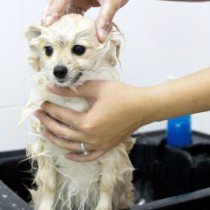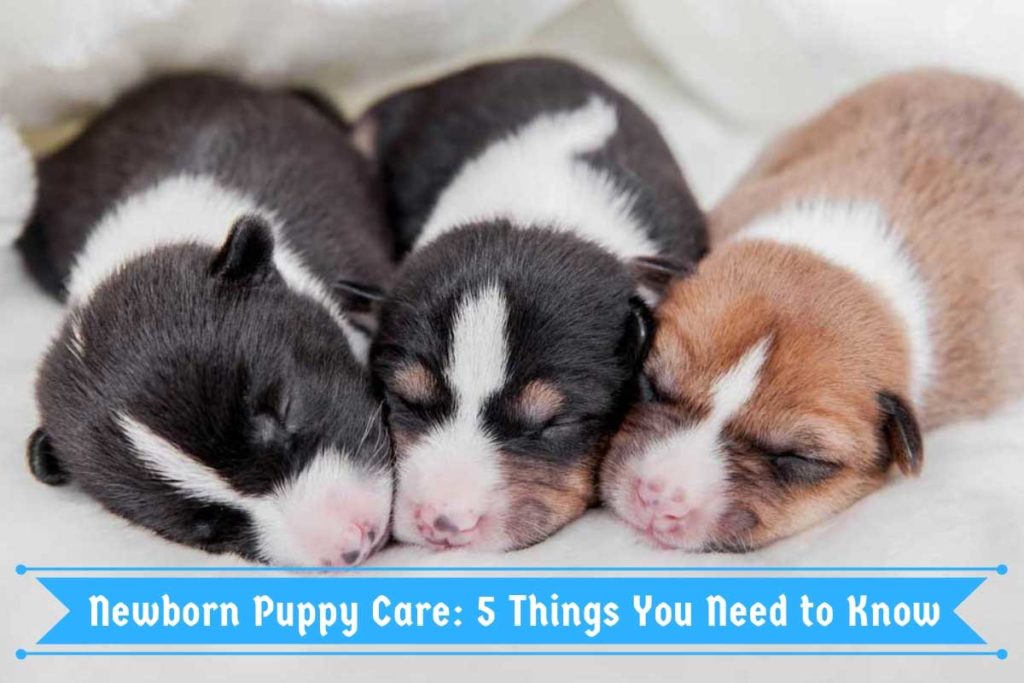
Ask all pet owners who have taken care of a newborn puppy and they will say the same thing: it takes a lot of work. Most people have never had the experience of caring for a newborn puppy because, in most cases, you don’t adopt a puppy until it is several weeks old. Any care for newborn puppies is limited to those who are responsible for the mother that gave birth to a litter or someone who accidentally inherited the responsibility of intensive care for newborn puppies. At such a young age, there is an increased risk of infections and even fleas are a serious threat.
If you find yourself in charge of newborn puppy care, there are several things you need to consider and.
First and foremost, you need to determine the role you will play in terms of care for the puppies. This means taking into account whether the birth mother is around to care for the puppies or if you need to serve as a surrogate mother. Obviously, if the puppies are born and subsequently abandoned, and then you’re forced to step in as a surrogate, your responsibilities are far greater than if you’re supporting an adult dog’s care of her own newborn pups.Remember that trying to feed a puppy that is newborn takes a certain amount of patience and skill—and numerous things can go wrong.While nursing the pup in the early stages, you may also need to invest in quite a lot of equipment and products such as a heat lamp to ensure the correct temperature, a water bottle (or baby bottle with teats), milk replacer (puppy formula), and so on.
Whenever possible, the mother of the litter should be the primary caregiver of newborn puppies. There have been cases in which a new mother lost her pups but was able to adopt an orphaned litter. Orphaned puppies have also joined other litters when their birth mother did not survive. Female dogs that have just given birth have a natural instinct to care for puppies and are able to provide them with the best possible option in terms of nutrition. If you are able to support a mother dog taking care of her puppies (or other newborn pups), you are giving them their best shot at a happy, healthy life.
Contents
What Do You Need to Know about the Care of Newborn Puppies?
Environment
Newborn puppies need a very specific environment in their first few hours, days, and weeks of life. To create a perfectly controlled environment, you need what is called a whelping box. Though it sounds complex, a whelping box can simply be a cardboard box that is big enough for the litter of pups and their mom—if she’s part of their lives.
The purpose of the whelping box is to keep the pups warm and protected. Mom will obviously be in and out of the box, but the pups will remain inside for the first few days of their lives. Therefore, you’ll want a box with sides high enough to keep them from slithering, rolling, or crawling out.
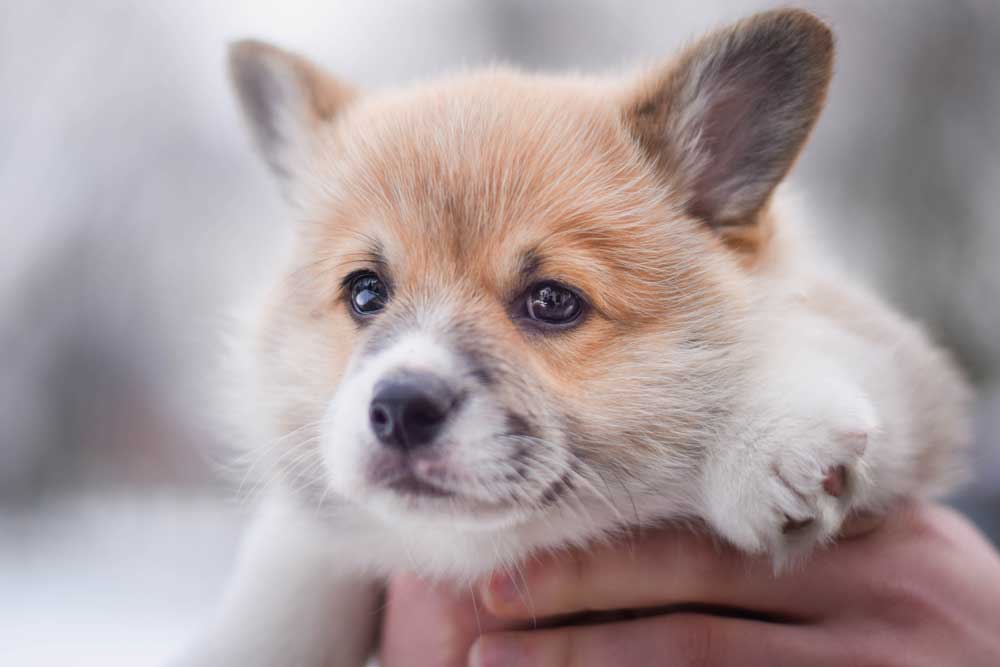
The box should be lined with towels to provide insulation and make the space soft and comfortable. Towels are also easy to remove and clean, which is essential since newborn pups aren’t yet potty trained and tend to be messy. You can also use fleece blankets, which are great for warmth and comfort; however, choose smaller ones that are about towel-sized and easy to clean.
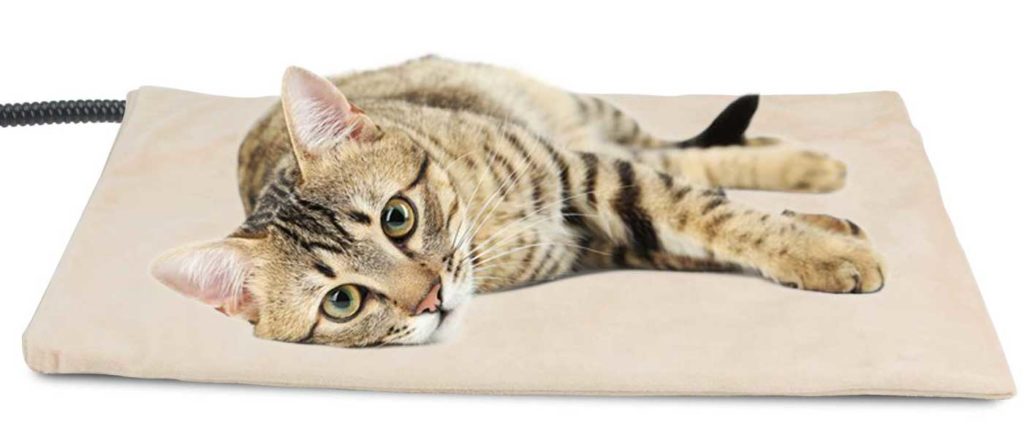
Adding a heated mat in the box is also a great idea—especially if the room isn’t particularly warm. A heated mat is even more important if you’re raising a litter of puppies and mom’s not around. If the heating mat is electric, make sure you keep a close eye on it and check it to ensure it doesn’t get too warm.
It’s also a good idea to cover a part of the box to give the puppies a bit more security and privacy. You can position a blanket over a corner of the box or slide part of it under a table. Just make sure that whatever you put over the box isn’t something that can fall onto the puppies and hurt them. The whelping box should also be placed in a quiet area where puppies feel secure and mom can feed them without distraction or loud noises. Remember, puppies are far more sensitive than adult dogs, so something that doesn’t bother a full-grown dog can be terrifying to a puppy.
As the puppies grow during the first couple of weeks, you might need to upgrade to a larger whelping box. They’ll start to crawl around the box more and explore their immediate surroundings; therefore, you want them to have enough space to move around each other and their mom without getting crushed or having issues breathing.
Socializing and Activities
Puppies are not particularly social in the first few weeks of their lives. It can also be risky trying to socialize with newborn pups when mom is around. Mothers of newborn puppies are very protective and can become aggressive, even with otherwise trusted members of their inner circle.
Everyone is a threat to a new mother dog and she will act out of instinct. Therefore,you need to limit the number of people who get near the puppies and, if you are caring for mom and babies, be extra cautious when you’re near her pups. It’s important to understand that the mother dog is merely doing her job and acting out of natural instinct. So, don’t be upset if your best pal is a little wary of you or lets out a growl once in a while when you get near her babies.
The majority of a newborn puppy’s life is spent sleeping. For the first couple of weeks, puppies will feed from their mother, maybe mew or whine a bit, wiggle and roll around in a small space, and sleep…a lot. They need this sleep, so don’t be too concerned if it seems like all they are doing is snoozing most of the time.
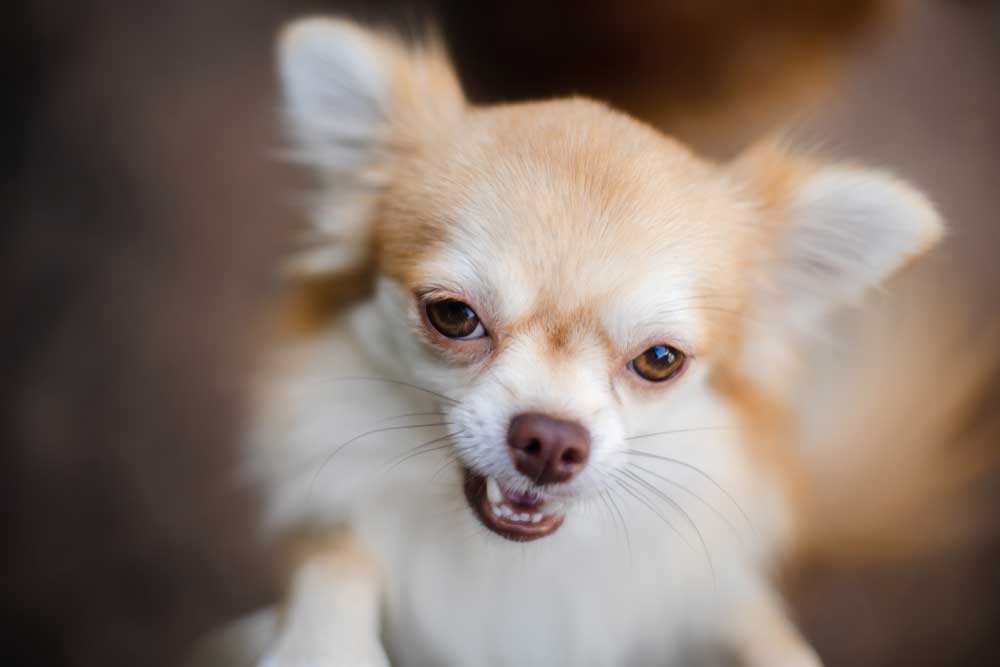
If you’re working as a surrogate mom for newborn pups, you’ll be responsible for feeding them. Most puppies nurse for the first eight weeks of their lives.However, if this simply isn’t an option, you’ll need to provide them a formula that serves as a replacement for their mother’s milk. You’ll feed the puppy through a syringe and then, as it grows older, use a small bottle until it is old enough to eat solid puppy food.
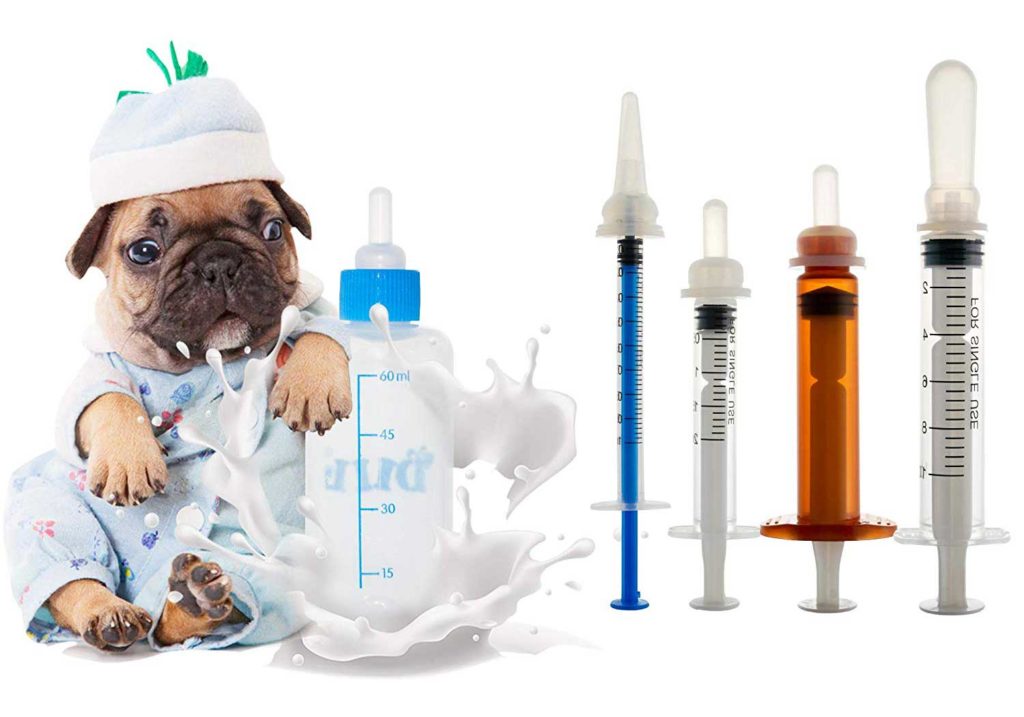
There are formulas, syringes, bottles, and other feeding supplies available for sale. You’ll also need to sterilize the syringes between feedings and make sure you provide the puppies with an appropriate amount of nutrition based on their weight. The formula needs to be heated and stored properly until it is used.
Every day, or every couple of days, you’ll need to weigh your puppies to calculate the amount of food they need to be fed over a given period of time. Frequent weigh-ins also help you determine if your pups are gaining weight as they should during the first few vital days and weeks of their lives. Your veterinarian will tell you how much weight the puppies should gain as they age according to their breed and the specific circumstances. A small digital scalemakes it easy to monitor a puppy’s weight.
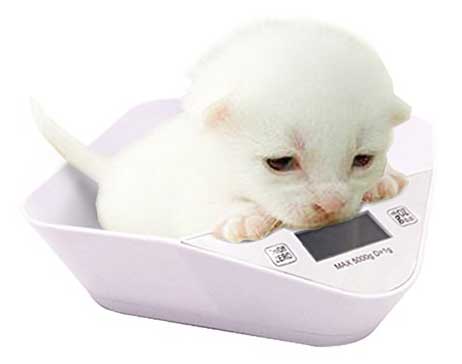
It’s best to have the puppies on a strict feeding schedule. Newborn puppies need to be fed 12 times a day, which, in most cases, translates to every two hours—even throughout the night. One-week-old puppies need feeding eight to ten times per day. Four-week-old puppies should be fed four times a day.
Feeding a newborn puppy can be tedious at first, but you’ll get used to it—probably just in time to transition them to solid food! You’ll want to carefully pick up and handle the puppy. Remember, the puppy will need to get used to human touch in the first few hours and days of their life. Before feeding begins, make sure you have a secure hold of the puppy and that their head is level. Newborn pups don’t yet have the strength to hold their heads upright or control the flow of milk down their throats, so make sure the head is tilted upward to avoid milk getting into their lungs. Never lay a pup on their back when feeding as you might a human baby.
Like human babies, puppies need to be burped after feeding, so place the puppy upright on your shoulder and gently pat the puppy’s back to allow for gas to be released. Gas buildup can be painful for baby pups, so this is an important part of the feeding ritual.
Newborn pups also need assistance with going to the potty. In most cases, the mother dog will use her tongue to stimulate the puppy’s natural body functions, but you can mimic this by using a moist cotton ball on the dog’s anal and genital area. It’s also important to monitor the puppy’s bodily fluidsto make sure the pups function normally, as well as process their food properly. Diarrhea can be a sign the puppy is getting too much formula; therefore, if you notice a puppy’s feces is watery, cut back on the amount of food you’re providing to see if the condition improves.
Finally, it’s important to have the puppies checked out by a veterinarian. This is important for all newborn pups but is absolutely necessary when puppies have been orphaned.
Training Newborn Puppies
During the first few weeks of newborn puppies, you aren’t really going to train them, other than helping them learn how to eat and perform their natural bodily functions. However, before too long, you’ll need to start teaching them how to adjust to their domesticated lifestyle. This is the case whether you’ve assumed the role of surrogate mom or if you have the help of the pups’ mother when it comes to training them.
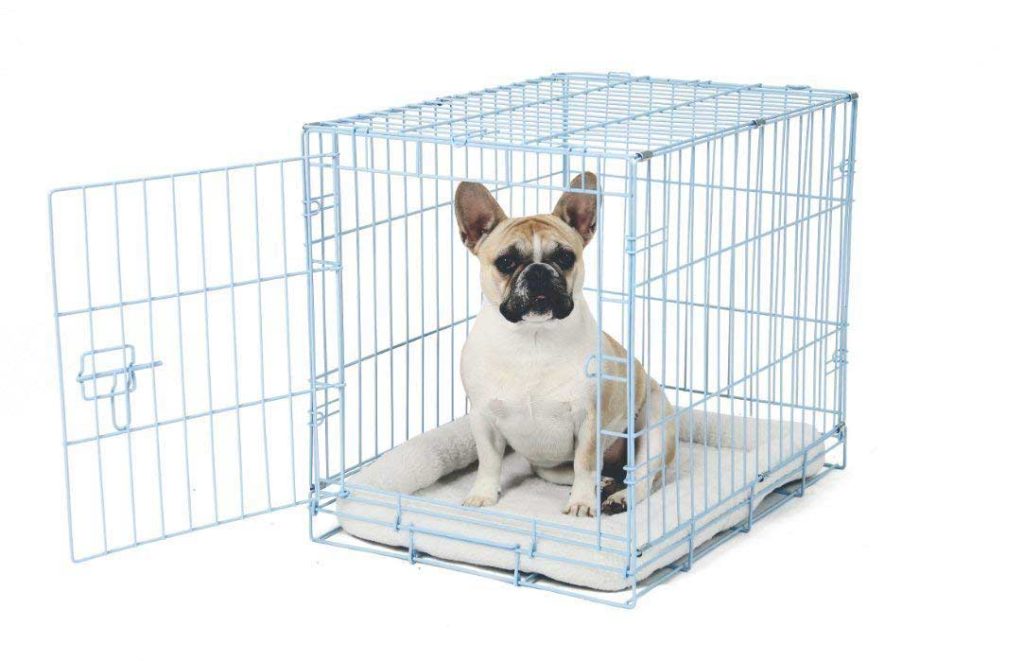
A puppy crate is a great training tool. If used properly, many dogs grow up to love their crates and see them as a safe place that is all their own. However, you need to start very early in life to ensure an adult dog doesn’t view the crate as a scary place or as punishment. Puppies that are a few weeks old can learn to sleep in their crates and continue to sleep in them once they are older. They can also spend time in their crates if you are away from home or when they are traveling.
Even if you do not intend to crate an adult dog on a regular basis once it is fully grown, it’s still a good idea to crate train as a puppy in case of an emergency situation later in life. Crate training is not intended to be cruel when used properly. It’s simply a way to help a puppy recognize boundaries and feel secure and confident. Think of a pup’s crate as you would a child’s bedroom. It’s a safe place of their own, but it’s also somewhere they can go to settle down if they are having a tough time getting their behavior under control.
Crate training can also help with potty training in a young pup’s life. When a pup is restricted to the crate,it is easier to control their potty habits and the puppy will quickly begin to equate being outdoors with using the potty. Establishing a feeding time, walk time, playtime, and crate time early on, helps a puppy figure out when certain behaviors are expected.
It’s important when you are potty training not to get angry or frustrated with a puppy. Puppies will learn much faster if you provide positive reinforcement and avoid scaring the pup. When accidents happen—and you can assume they will at least a few times—don’t get angry with the puppy. If you catch a puppy in the act of urinating or defecating in an inappropriate spot, sternly say “no!” and take your puppy to where he should go potty. However, trying to reprimand a puppy after potty accidents does not do any good because he will not understand what’s happening. Dogs learn by equating your response with what they are doing in that exact moment, so you’re better off providing lots of positive reinforcement when a dog does something right, rather than using excessive negative reinforcement for mistakes.
Puppies are usually weaned around eight weeks of age, which means your responsibilities as a surrogate mother will begin to ease. However, unless your puppies are being adopted into new homes at this point, your fun is just beginning and you’ll have plenty more to teach your dog as he grows.
I grew up in a household that was filled with animals. I believe that my fate as a dog-loving person was sealed in early childhood since my parents owned several dogs of varying sizes and breeds. There was no choice but to take care of and learn about dog habits and the best animal care practices — otherwise, I’d be clueless about how to go about the creatures I was surrounded by day and night.
As a life-long puppy lover, I know a thing or two about dogs and how to go about caring for them in the best way possible. Although I’m not a professionally trained dog behaviorist, trainer, or veterinarian, all of my knowledge and experience with canines comes from a place of love and a deep-rooted passion for dogs and animals in general.
Seeing as dogs kept me company throughout every stage of my life, I decided to follow a different path in my academic life and obtained a Bachelor’s and Master’s degrees in Marketing Management and Digital Advertising, which ultimately allowed me to combine my professional training and personal experience by creating the ultimate dog lover’s resource website! Along with my husband, Dave, I run MySweetPuppy for like-minded dog lovers who want to have a single, clear, and reliable information source about anything and everything related to dogs and their well-being.

![[HOW TO] Get Rid Of Puppy Worms Today](https://mysweetpuppy.net/wp-content/uploads/2020/09/How-much-should-I-feed-my-8-week-old-lab-puppy.jpg)

